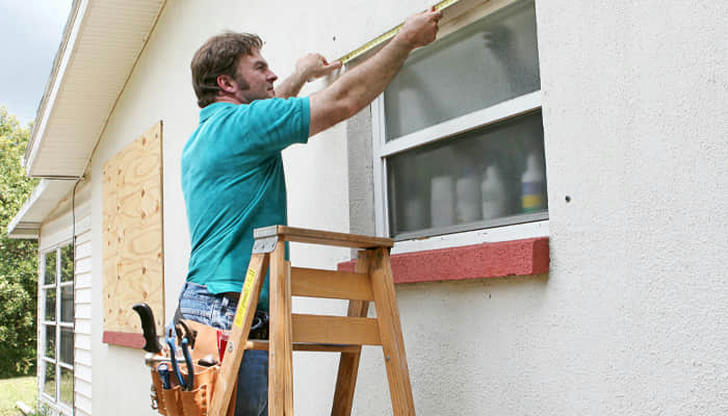How to Prepare Your Home Insurance for Hurricane Season

Hurricane season can be stressful for homeowners, especially if you're unsure whether your home insurance will protect you when a storm hits. Being prepared ahead of time can save you a lot of headaches, money, and worry. If you live in a hurricane-prone area or just want to be smart about your coverage, it's important to review and adjust your home insurance before the season starts.
In this article, we'll walk you through simple and practical steps to get your home insurance ready for hurricane season, so you can protect your biggest investment with confidence.
1. Understand What Your Policy Covers (and What It Doesn't)

Not all home insurance policies cover hurricane damage in the same way. Standard policies usually cover wind damage, but flood damage from storm surges or heavy rains often requires a separate flood insurance policy. It's crucial to know exactly what your policy includes.
Tip: Read your insurance documents carefully or talk to your agent to clarify your coverage. If you don't have flood insurance, consider buying it separately, especially if you live in a flood-prone area.
2. Check Your Coverage Limits and Deductibles
Your coverage limits are the maximum amount your insurer will pay for damages. Deductibles are what you pay out of pocket before insurance kicks in. Higher deductibles usually mean lower premiums, but during hurricanes, some policies have special hurricane deductibles that might be higher than usual.
Tip: Review your limits to make sure they're enough to rebuild or repair your home. Understand your hurricane deductible and decide if you want to adjust it before the season starts.
3. Update Your Home Inventory

Having an up-to-date home inventory can make filing a claim faster and less stressful. This inventory should include photos, receipts, and descriptions of your belongings. Many claims get delayed or reduced because people can't prove what they lost.
Tip: Take pictures or videos of every room and important items. Store this inventory safely, such as in the cloud or an external drive.
4. Prepare Documentation of Home Repairs and Upgrades
If you've made improvements to your home that help protect it against storms—like installing hurricane shutters, reinforcing your roof, or upgrading windows—keep proof of these upgrades. Some insurers offer discounts or better coverage for storm-resistant homes.
Tip: Collect receipts, contractor reports, and photos of upgrades and share these with your insurance agent.
5. Consider Additional Coverage for Valuable Items

If you have expensive valuables like jewelry, artwork, or collectibles, your standard home insurance might not fully cover them. Hurricanes can cause severe damage and loss, so it's wise to look into additional coverage or separate policies for these items.
Tip: Ask your insurer about “scheduled personal property” endorsements that protect high-value belongings.
6. Understand the Claims Process Before You Need It
Knowing how to file a claim, what documents you need, and who to contact can save precious time after a hurricane. Some insurance companies have special hotlines during emergencies to help customers quickly.
Tip: Keep your insurer's contact info handy and ask for step-by-step instructions on how to report hurricane damage claims.
7. Prepare Your Home to Reduce Damage and Insurance Hassles

While insurance protects you financially, preventing or minimizing damage is the best defense. Simple preparations like trimming trees, securing outdoor furniture, and clearing gutters can reduce damage and speed up claim approval.
Tip: Document your home's condition before the hurricane hits with photos. This will help with any dispute about damage later.
8. Know the Deadlines for Reporting Claims
Insurance companies have deadlines for when you need to report damage after a hurricane. Missing these deadlines could delay or even deny your claim.
Tip: Ask your insurer about how soon you need to file a claim after a hurricane and mark the date on your calendar.
9. Review Your Policy Annually

Your insurance needs can change over time. Whether you renovate, buy new valuables, or market conditions change, reviewing your policy at least once a year ensures your coverage stays current.
Tip: Schedule a yearly insurance check-up with your agent, ideally before hurricane season starts.
Final Thoughts
Preparing your home insurance for hurricane season is a smart way to protect your home, belongings, and peace of mind. By understanding your coverage, updating your documents, and taking practical steps to minimize damage, you can face the season with greater confidence. Remember, insurance is just one part of hurricane preparedness—planning ahead helps you weather the storm with less stress and faster recovery.
If you haven't reviewed your policy yet this year, now is the perfect time to do it. Talk to your insurance agent, ask questions, and make sure you and your home are ready before hurricane season begins.
